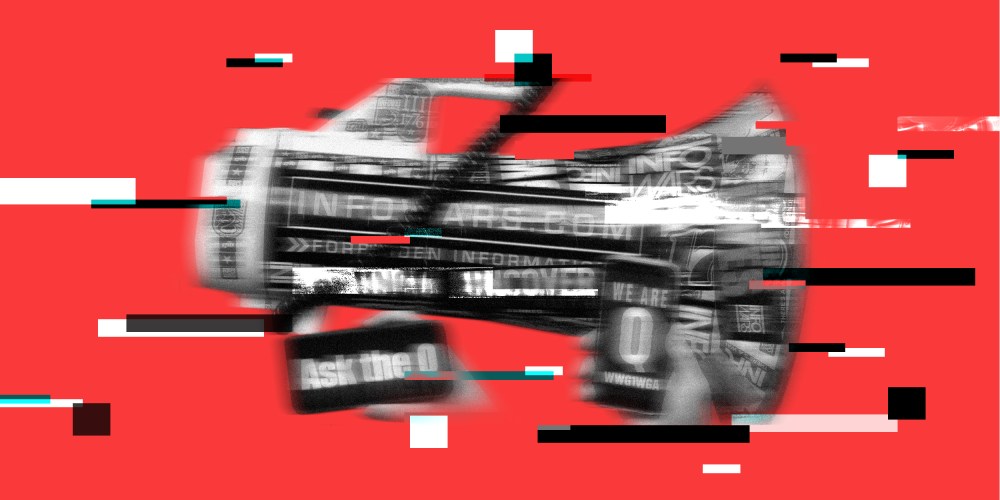The number of Americans in thrall to a sectarian cult is a heck of a lot less than the 74 million who voted for former President Donald Trump in November. Still, devotees of alt-right Trump supporters were organized and numerous enough to storm the U.S. Capitol.
Although believers are drawn to conspiracies by the need to belong, they can break free — but timing is crucial.
A Reddit support forum for families who have lost loved ones to QAnon had nearly 30,000 members in November. Children have seen parents disappear into the dream world of conspiracies and become incapable of communicating about anything but fantasy. Reports show military veterans are particularly at risk for being radicalized online.
Although believers are drawn to conspiracies by the need to belong, they can break free — but timing is crucial. Right now, for instance, we’re seeing reports of disillusioned QAnon followers who have been robbed of the promises of mass arrests of Democrats, exposure of the deep state and another term of Trump in office. This window of doubt could be a rare opportunity to break the spell.
QAnon followers were expecting mass arrests of Democrats, exposure of the ‘deep state,’ President Trump enacting martial law and staying in power. So how are Q followers reacting to all of this? A mixture of disappointment, anger and denial says @marcambinder pic.twitter.com/2wb5TshI0d
— Kim Brunhuber (@kimbrunhuber) January 22, 2021
But the line between obnoxious (but protected) speech on the one hand and small groups of people who are one step away from harming others on the other is difficult to envision and even harder to codify into law. Plus, the overwhelming surveillance powers of the U.S. national security state are substantial, so we should be careful and deliberate before we expand them.
Bringing people back to reality is a bottom-up effort, according to experts who have worked directly with adherents to conspiracy ideologies. One is Brandon Blackburn, a former CIA targeting officer who spent a decade working on counterterrorism operations to disrupt terrorist threats against the United States in the Middle East and Southeast Asia.

Since he left government, Blackburn has consulted extensively with law enforcement and nonprofit organizations to rehabilitate people who have succumbed to extremist ideologies. “There is an opportunity to tailor approaches based on what you know about a person’s socio-economic background,” he said, as well as using clues like what someone was exposed to in childhood that could render them “malleable to the point that they could succumb to such extreme viewpoints.”
That’s the easier part, though. “When you really break it down from a psychological standpoint, there’s a certain type of wiring where certain people are prone to believe sensationalistic theories or conspiracy theories based on their disillusionment, their disenfranchisement with their place in life. It’s hard to unwire,” Blackburn said.
“You basically are using the same tactics that brought them to commit to such a radical ideology to get them out.”
But what happens when we need to do this at scale? Should we seek out influencers in certain communities and work on deradicalizing them first? No, according to Blackburn.
“The minions of group leaders are most vulnerable to having their allegiances and their ideologies challenged,” he said. “You basically are using the same tactics that brought them to commit to such a radical ideology to get them out.”
The post-9/11 paradigm, wherein the federal government created policies to “counter violent extremism” in Muslim and Arab communities in the U.S., has already shown us what not to do. The U.S. tried to get so-called nonviolent Muslim leaders to model good behavior, which mostly backfired when adherents to an extremist version of the faith simply found new communities where they felt welcome.

When the U.S. fought against ISIS in Iraq, the most successful tactic was information operations: cyber intrusions into jihadi chat rooms, spreading disinformation and confusing adherents — and then deplatforming them by shutting down even closed communication networks, according to a number of people involved.
Deplatforming, though, is a short-term solution to an enduring problem. And it raises significant issues of constitutional ethics when the targets are American citizens.
One thing Blackburn said we should consider is that when the media covers extremist groups and conspiracy theories, it becomes free press. According to him, “You can help spread a movement pretty quickly in a viral way in this day and age, and that’s something I don’t think a lot of people have an appreciation for.”












